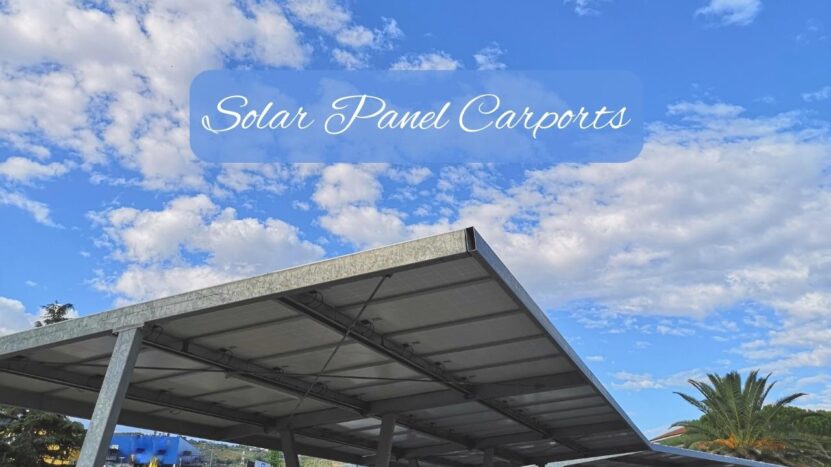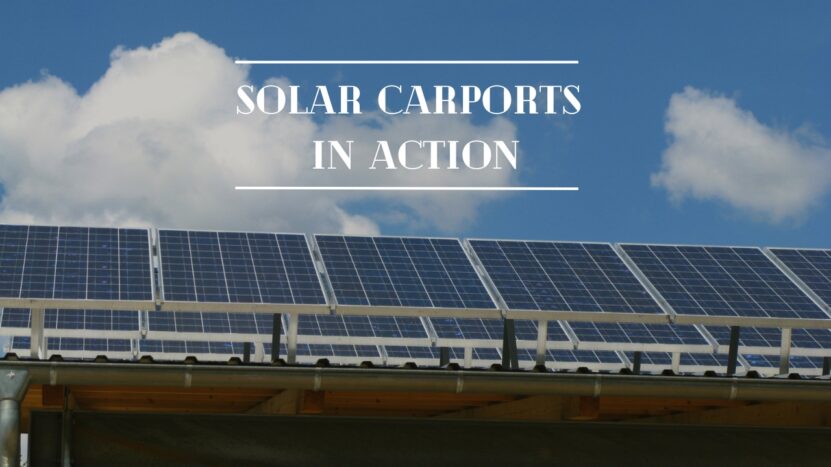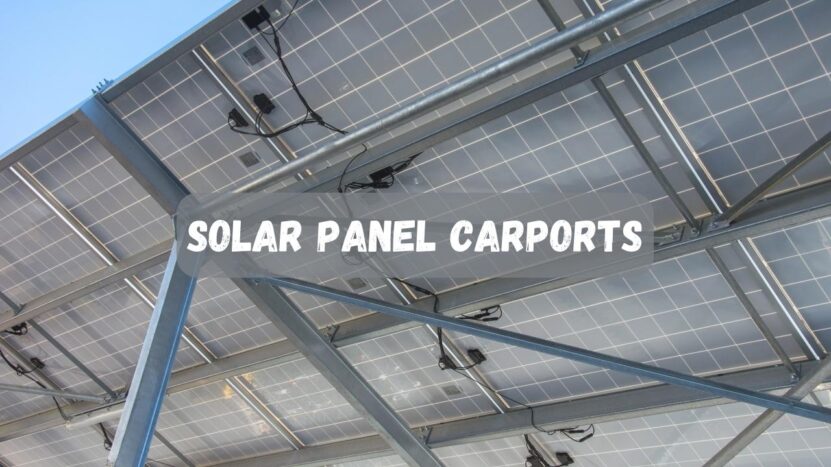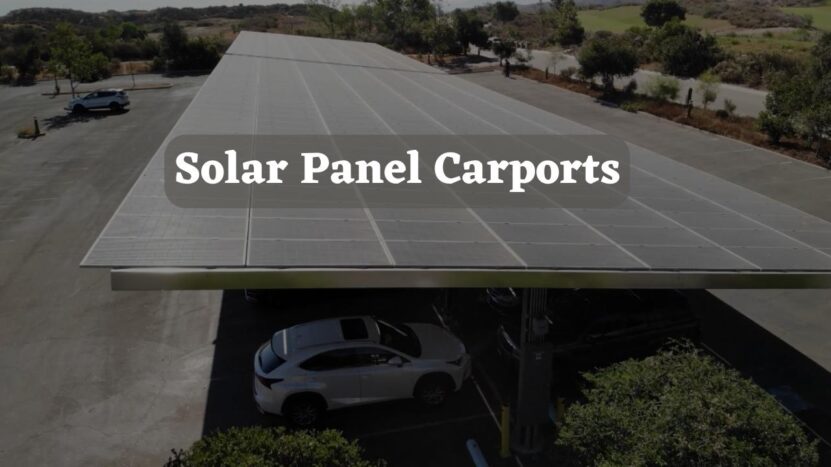Solar energy technology has skyrocketed to heights unimaginable just a few decades ago. From residential rooftops to expansive solar farms, the sun’s power has been harnessed in various creative and innovative ways. Among these advancements, one particularly exciting development is catching the eye of green-minded homeowners and businesses alike: Solar Panel Carports.
These structures, which blend function and sustainability, are shaking up how we think about parking and power generation. Today, we’ll delve deep into solar panel carports, exploring what they are, how they work, their benefits, installation considerations, and much more.
Defining Solar Panel Carports

So, what exactly are solar panel carports? As the name suggests, these are carports – structures designed to shelter vehicles – integrated with solar panels on their roofs. Similar to a traditional carport, they provide protection for your vehicle from the elements. However, they also contain solar photovoltaic (PV) panels that convert sunlight into electricity.
Solar carports are a shining example of multi-purpose design. They perform double duty, providing a parking spot while simultaneously generating clean, renewable energy. Depending on the system, the energy produced can be used immediately, stored in a battery system, or fed back into the electricity grid.
The Mechanism: How Do They Work?
Solar panel carports work on the same basic principle as any other solar PV system. When sunlight strikes the solar cells in the panels, it excites the electrons in the semiconductor material. This process, known as the photovoltaic effect, results in the generation of direct current (DC) electricity.
The DC electricity is then converted into alternating current (AC) through an inverter, which can then be used to power household appliances or electric vehicle charging stations. Any excess power can be fed back into the grid or stored in a battery system for later use.
Key Benefits of Solar Panel Carports
- Maximizing Space Usage: Solar carports are an excellent solution for those who want to generate solar power but may not have suitable rooftop space or prefer to keep their rooftops unencumbered.
- Energy Savings: Solar carports generate electricity that can offset your energy consumption and, consequently, reduce your utility bills.
- Protecting Your Vehicle: Just like traditional carports, solar carports offer protection for your vehicle from rain, sun, and snow.
- Boosting Property Value: Adding a solar carport can increase the value of your property as they are an attractive feature to potential buyers who are interested in sustainability and lower energy costs.
- Environmentally Friendly: By using renewable solar energy, you reduce your reliance on fossil fuels, which contributes to the reduction of harmful greenhouse gas emissions.
Installation Considerations

Before you start looking for installers, there are several factors you need to consider:
- Local Regulations and Permits: Check local building codes, zoning laws, and possible permit requirements.
- Size and Orientation: The size of your carport will depend on the number of vehicles you need to accommodate. For optimal sunlight exposure, the carport should be south-facing (in the northern hemisphere).
- Cost and Financing: Solar carports can be more expensive than traditional carports due to the additional electrical equipment. However, the cost can be offset over time through energy savings.
- Quality of Components: Ensure you’re getting high-quality solar panels, inverters, and mounting systems. Research different brands and read customer reviews.
Breaking Down the Costs: Solar Panel Carports Investment
When considering a solar carport, one of the key questions is: “What will it cost?” It’s important to remember that the price tag is more than just the cost of the materials and installation. It’s an investment that pays dividends over time in several ways.
The initial cost of a solar panel carport can range from $3,000 to $7,000 per installed kilowatt, depending on various factors like your location, the size of the carport, the efficiency of the solar panels, and labor costs. Keep in mind that this is a rough estimate; for an accurate quote, you should consult with local solar installers.
However, the upfront cost doesn’t tell the whole story. Solar panel carports generate electricity, reducing your monthly power bills. This means that over time, your solar carport will pay for itself. The timeline for this “payback period” can vary depending on your local electricity rates and how much sunlight your carport receives, but typically falls between 5 to 10 years.
Furthermore, in some regions, you might be eligible for incentives such as tax credits, rebates, and feed-in tariff schemes that can further offset the cost. Always research local incentives when considering a solar installation of any kind.
Case Studies: Seeing Solar Carports in Action

To really understand the potential of solar carports, let’s look at a couple of real-world examples:
- Las Vegas City Hall: In 2012, the City Hall complex installed solar carports that produce 1,455,000 kWh of electricity annually. Not only does this help power the complex, but it also reduces greenhouse gas emissions by over 1,000 metric tons each year.
- Rutgers University: With a total capacity of 8 megawatts, Rutgers University boasts one of the largest solar carports in the United States. The system covers various parking lots across the campus and generates enough electricity to meet approximately 14% of the university’s needs.
These case studies show that solar carports aren’t just for single homes—they can be scaled up to cover a whole range of facilities, from municipal buildings to university campuses, providing clean energy on a significant scale.
Final Thoughts

As we navigate towards a sustainable future, solar panel carports are another important tool in our renewable energy arsenal. They offer an effective way to harness the power of the sun, providing a clean energy source while adding functionality and financial value to your property.
If you’re considering taking the solar plunge, a solar panel carport might be the perfect solution. As always, research, planning, and a solid understanding of your own energy needs will be your best guide. If you’re ready to make a step into the future of energy, why not let the sun help power the journey? Solar panel carports are more than just a great idea – they’re a shining example of how we can all play a part in creating a sustainable tomorrow.
Discover how to maximize space and harness the sun’s potential in 2024 by determining the optimal solar panel angle based on your zip code.

